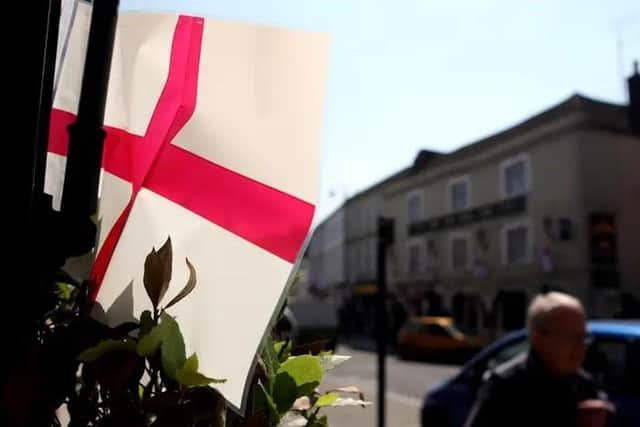St George's Day: Fewer people identify as British in Wakefield
and live on Freeview channel 276
The Office for National Statistics’ Annual Population Survey invites a sample of local people to declare their identity.
Participants can select as many options as they like from British, English, Scottish, Welsh, Irish or ‘other.’
Advertisement
Hide AdAdvertisement
Hide AdThe latest results come ahead of St George’s Day on April 23 – a celebration of England’s patron saint and the country’s history.


In the year to June 2016, in the lead-up to the Brexit referendum, 62% of residents surveyed in Wakefield said that they identify as British - but this fell to 59% in the year to December 2021.
Over the same period, the proportion of people seeing themselves as English remained largely unchanged, at 68% in the year to December 2021.
It was a different story across England as a whole, where English identity has been on the decline.
Advertisement
Hide AdAdvertisement
Hide AdSome 44% of people identified as English in the year to December 2021, down from 52% in the year to June 2016. The proportion of people identifying as British has increased over the same period – rising from 49% to 59% across the country.
Sunder Katwala, director of the think tank British Future, said: "Most people in England have two flags and two identities, English and British. The strength of feeling for them ebbs and flows according to events – we will see a lot of Union Jacks during the Jubilee celebrations, but it will be the England flag flying for the World Cup in November.
"How you ask the question also affects the result. While seven in ten said they were English in the last census, that will flip this time round as 'British' now comes first on the tick-box list."
John Denham, director of the Centre for English Identity and Politics at the University of Southampton, said the findings should be approached with caution.
Advertisement
Hide AdAdvertisement
Hide AdHe said: “There has been some movement towards identifying as more British than English - probably mainly due to demographic change.
“Young people are more likely to more likely to identify as British than older generations.”
But Mr Denham warns that the survey may exaggerate this shift, as participants do not tend to select more than one option for their national identity, and therefore will not capture the extent to which people in England identify as both English and British.
According to recent polling carried out for British Future, just 10% of people described themselves as more British than English, while 44% said they feel equally British and English.